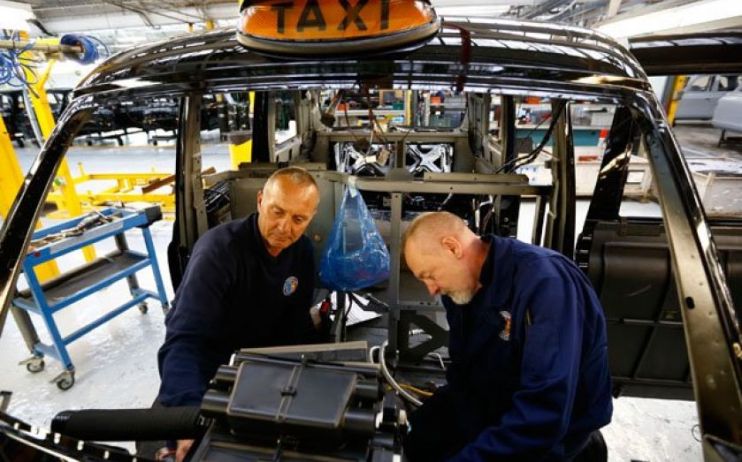UK economy set to return to growth in third quarter after coronavirus chaos

The UK economy’s coronavirus-induced downturn eased in June as key health indicators hit a four-month high, according to a closely-followed survey.
The UK’s economic output hit a measure of 47.6 on IHS Markit’s flash purchasing managers’ index (PMI), a four-month high.
Anything below 50 represents a contraction. But it was a stark improvement from May’s score of 30 after April’s lockdown saw the UK economy sink to an all-time low score of 13.8.
IHS Markit’s chief business economist, Chris Williamson, said it was a sign the UK looks set to return to growth between June and September.
“June’s PMI data add to signs that the economy looks likely return to growth in the third quarter, especially given the further planned easing of the lockdown from 4 July,” he said.
“June saw a record rise in the PMI for a second successive month,
confirming that the economy is moving closer to stabilising after the worst of the immediate economic impact from the Covid-19 pandemic was felt back in April.”
The pound was broadly flat against the dollar this morning to stand at $1.2462.
It follows earlier PMI showing the eurozone economy also hit a four-month high, led by France’s recovery.
Manufacturers lead UK recovery
The manufacturing sector led the UK’s June recovery to post growth of 50.8. But the UK services industry slipped again, though not nearly as badly as it did in May. The industry posted a score of 47, compared with May’s 29.
The UK’s private sector also said confidence hit a four-month high in June as firms raised their expectations for the year ahead.
Easing of lockdown restrictions amid the coronavirus pandemic helped UK economic activity improve after its April collapse.
Uncertainties loom for UK economy
But industry figures told IHS Markit underlying demand remained “very subdued”, with cutbacks in spending holding back business activity.
And Williamson warned the UK economy’s longer term prospects are plagued by uncertainty.
“Demand clearly remains weak, as indicated by a further steep decline in backlogs of orders and an ongoing fall in new orders,” he said. “Many Covid-19 restrictions and social distancing measures will also need to stay in place until an effective treatment or vaccine is available, curbing demand in a variety of service sectors in particular.
“Uncertainty over recovery prospects and job prospects also mean demand for many goods, especially non-essential big-ticket items, is likely to remain weak for many months.”
Doubt over whether the UK can strike a trade deal with the EU before the Brexit transition period ends in December 2020 is also a worry for firms.
That led IHS Markit to forecast the UK economy to contract by 11.9 per cent this year before expanding by 4.9 per cent in 2021.
‘Solid start’ to UK economy’s recovery
Samuel Tombs, chief UK economist at Pantheon Macroeconomics, said the June data suggests a solid rebound in GDP. But he warned gains will be harder to come by as the UK economy struggles to return to normal.
“A range of daily data are consistent with output rising significantly in June, after a sluggish start to the recovery in May,” he said.
“Nonetheless, the pick-up in activity partly reflects firms working through backlogs of work that accumulated during the peak of the pandemic. In addition, firms still are cutting headcounts rapidly.
“With restrictions to suppress Covid-19 likely to impose a hard ceiling on activity in certain sectors of the economy until a vaccine is found, and low levels of consumers’ confidence pointing to elevated saving, a full recovery in GDP in the second half of this year remains unlikely.”
Pantheon Macro stuck to its base case that GDP will stand five per cent below its pre-lockdown peak in the fourth quarter.
Thomas Pugh, Capital Economic’s UK economist, added that the pace of the UK economy’s recovery was pleasing.
“The economy seems to be recovering a little quicker from its nadir in April than we had first expected,” he said. “This trend should continue in July as bars, restaurants and cinemas will probably be able to open from 4 July and a reduction in the official social distancing measure from 2m to 1m would allow those firms that are open to serve significantly more customers. “
More to follow.